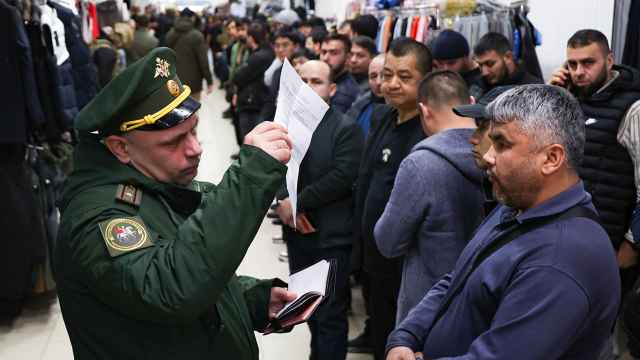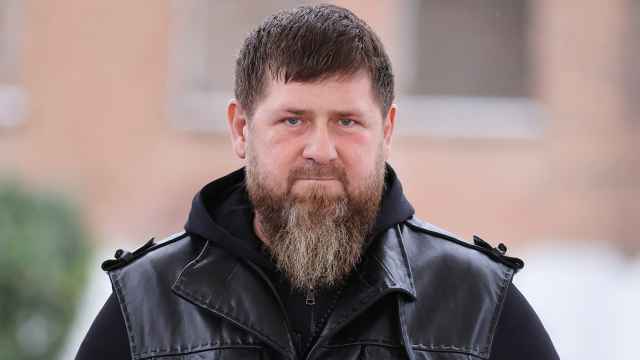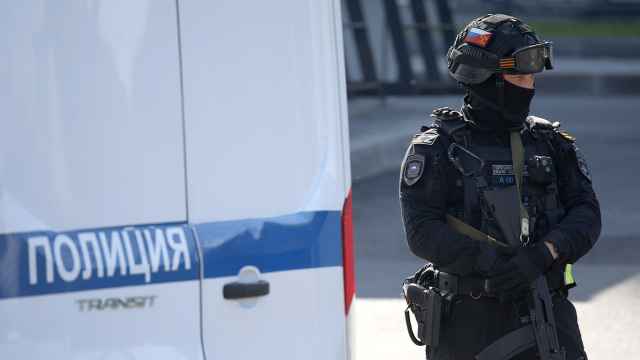Russian authorities are developing a database of undocumented migrants who will face bans on driving, marrying and enrolling their children in school starting next year, as part of new laws aimed at tightening immigration control.
The restrictions stem from legislation signed by President Vladimir Putin last month, which establishes a “deportation regime” allowing for the surveillance and expulsion of undocumented migrants without requiring a court order. The new laws are set to take effect on Feb. 5, 2025.
Police Colonel General Alexander Gorovoy, Russia’s First Deputy Interior Minister overseeing immigration policy, said that compiling the database will require significant cooperation across government agencies.
“Once included in the database, these individuals will be barred from driving vehicles, accessing banking services, registering property, entering into or dissolving marriages, as well as enrolling children in kindergartens and schools,” Gorovoy told the Kommersant business daily in an interview published Thursday.
Gorovoy also noted the need for support from Russia’s Finance Ministry and technical services to ensure the new immigration rules are effectively implemented.
Russian lawmakers have urged the government to expedite the creation of the database, according to the business newspaper Vedomosti. Deputy Prime Minister Tatiana Golikova reportedly informed State Duma Speaker Vyacheslav Volodin that the database would be made accessible to the public.
Russia’s Interior Ministry previously reported that the number of migrants in the country had dropped from 8.5 million last year to 6.1 million as of September 2024.
Authorities in Russia have adopted a tougher line on migration since the deadly concert hall attack outside Moscow in March. The four suspected gunmen behind the shooting are all citizens of Tajikistan
A Message from The Moscow Times:
Dear readers,
We are facing unprecedented challenges. Russia's Prosecutor General's Office has designated The Moscow Times as an "undesirable" organization, criminalizing our work and putting our staff at risk of prosecution. This follows our earlier unjust labeling as a "foreign agent."
These actions are direct attempts to silence independent journalism in Russia. The authorities claim our work "discredits the decisions of the Russian leadership." We see things differently: we strive to provide accurate, unbiased reporting on Russia.
We, the journalists of The Moscow Times, refuse to be silenced. But to continue our work, we need your help.
Your support, no matter how small, makes a world of difference. If you can, please support us monthly starting from just $2. It's quick to set up, and every contribution makes a significant impact.
By supporting The Moscow Times, you're defending open, independent journalism in the face of repression. Thank you for standing with us.
Remind me later.






